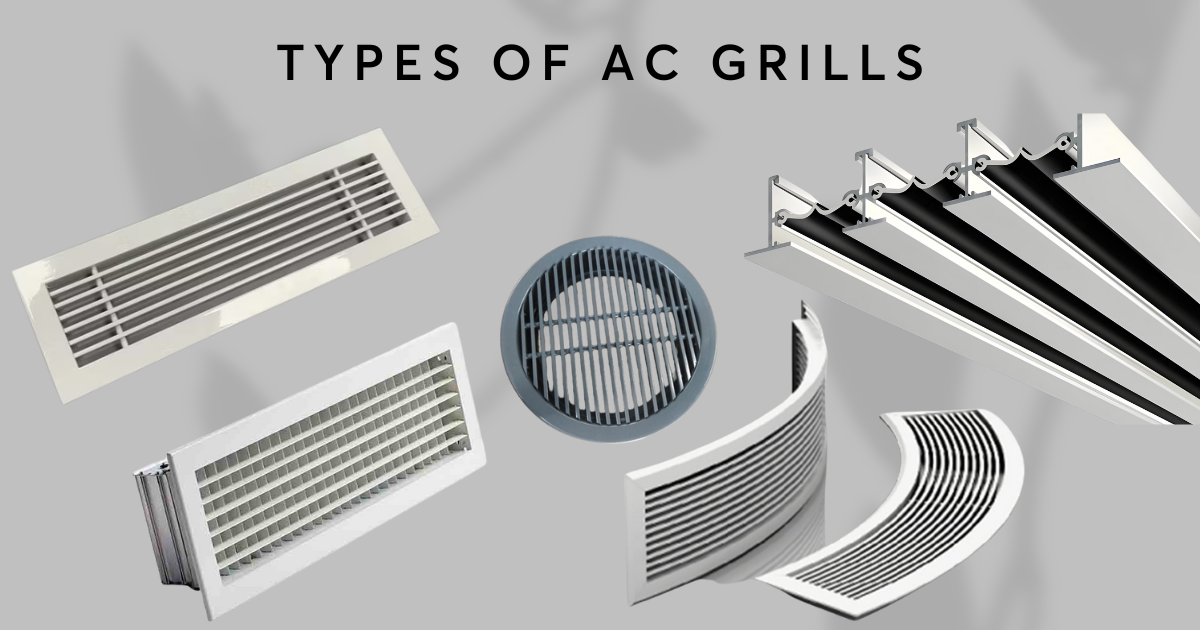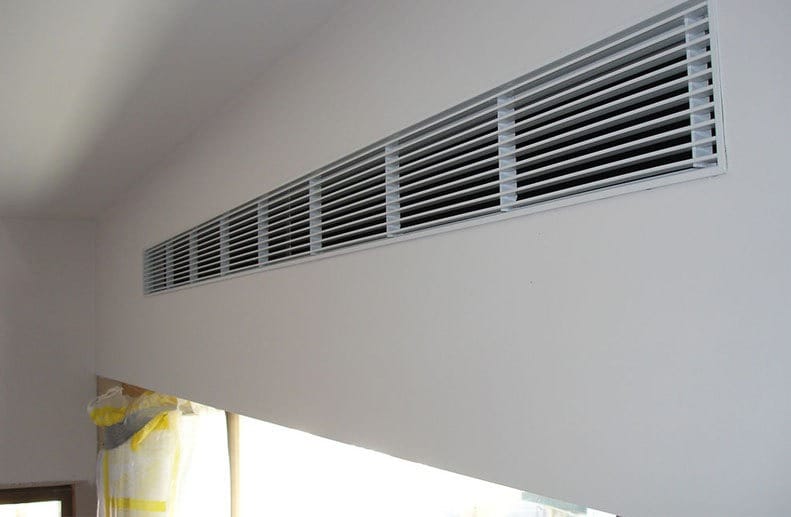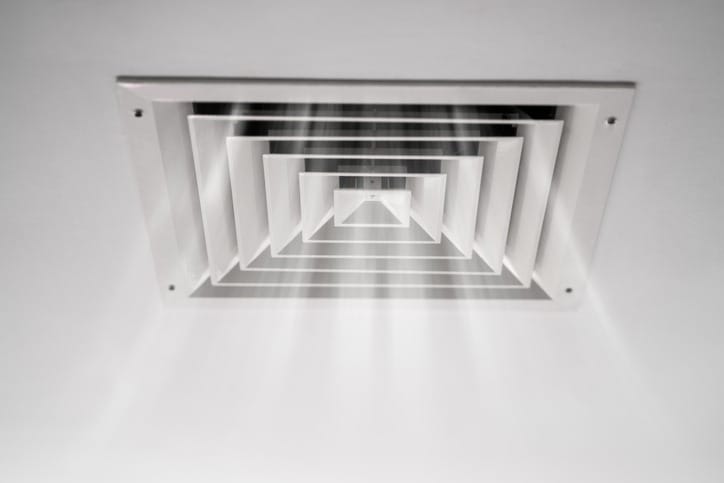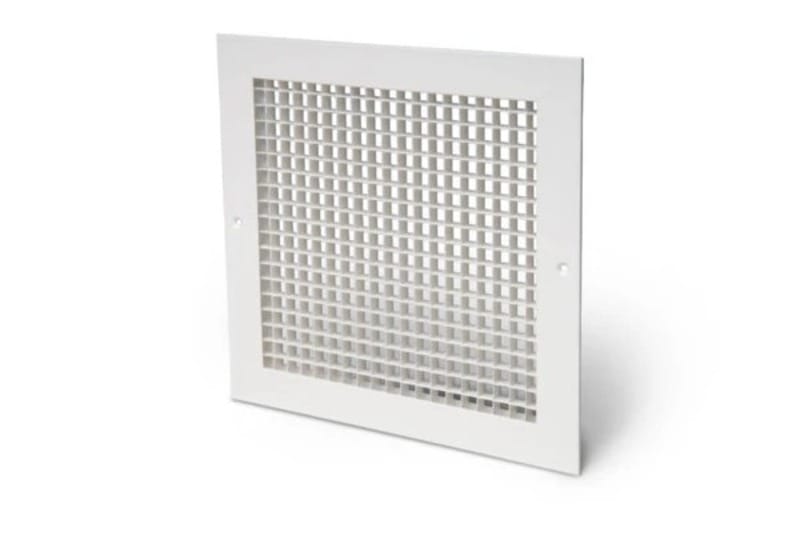Type of AC Grills : Which one is right for your project?

When it comes to designing efficient heating, ventilation, and air conditioning (HVAC) systems, choosing the right AC grill is crucial. AC grills not only impact the aesthetic appeal of a space but also play a significant role in airflow efficiency and overall system performance. As HVAC contractors and MEP consultants, understanding the different types of AC grills available will help you make informed decisions for your projects. In this blog, we will explore the various types of AC grills, their applications, and how to select the right one for your specific needs.
Understanding AC Grills
AC grills are essential components of HVAC systems, serving as the interface between the ductwork and the conditioned space. They facilitate the distribution of air while ensuring that the system operates efficiently. The right grill can enhance airflow, improve comfort levels, and contribute to energy savings.
Key Factors to Consider
Before diving into the types of AC grills, consider the following factors that influence your choice:
- Airflow Requirements: Determine the volume of air that needs to be delivered to the space.
- Aesthetic Preferences: Consider the design and appearance of the grill, especially in visible areas.
- Installation Environment: Evaluate the space where the grill will be installed, including ceiling height and wall materials.
- Maintenance Needs: Some grills require more maintenance than others, which can impact long-term costs.
Types of AC Grills

1. Supply Grills
Description: Supply grills are designed to deliver conditioned air from the HVAC system into the living or working space.
Applications: Commonly used in commercial and residential settings.
Considerations: Look for adjustable louvers that allow for directional airflow control.
2. Return Grills
Description: Return grills facilitate the return of air back to the HVAC system for reconditioning.
Applications: Essential in both residential and commercial systems to maintain balanced airflow.
Considerations: Choose grills that minimize noise and maximize airflow efficiency.
3. Diffusers

Description: Diffusers are specialized grills that distribute air evenly across a space, creating a more comfortable environment.
Applications: Ideal for large open areas such as offices, auditoriums, and retail spaces.
Considerations: Opt for diffusers with adjustable features to control airflow patterns.
4. Registers
Description: Registers are similar to grills but include a damper that allows for airflow control.
Applications: Commonly used in residential heating and cooling systems.
Considerations: Ensure the register is compatible with the duct size and system requirements.
5. Linear Grills
Description: Linear grills provide a sleek, modern look and can be installed in various orientations.
Applications: Frequently used in contemporary designs, such as offices and high-end residential spaces.
Considerations: Ensure proper sizing to maintain airflow efficiency and aesthetic appeal.
6. Eggcrate Grills

Description: Eggcrate grills feature a grid-like structure that provides a high level of airflow while minimizing drafts.
Applications: Often used in commercial applications, such as data centers and warehouses.
Considerations: Ensure that the grill is easy to clean and maintain, as dust can accumulate in the grid.
Making the Right Choice
Selecting the appropriate AC grill for your project involves balancing functionality, aesthetics, and budget. Here are some actionable steps to help you make the right choice:
- Assess Project Requirements: Evaluate the specific needs of the space, including airflow requirements and design preferences.
- Consult with Manufacturers: Reach out to manufacturers for product specifications and recommendations based on your project’s unique needs.
- Consider Energy Efficiency: Opt for grills that enhance system efficiency and reduce energy consumption.
- Plan for Maintenance: Choose grills that are easy to access and clean to ensure long-term performance.
- Test Airflow: If possible, conduct airflow tests to determine the best grill type for optimal performance.
Conclusion
Choosing the right AC grill is a critical decision that can significantly impact the performance and efficiency of HVAC systems. By understanding the various types of grills and their applications, HVAC contractors and MEP consultants can make informed choices that enhance both functionality and aesthetics in their projects. Remember to consider the specific needs of each project and consult with manufacturers to find the best solution for your clients. With the right AC grill, you can ensure comfort, efficiency, and satisfaction in every space you design.
For more details visit goodwindco.in/products
